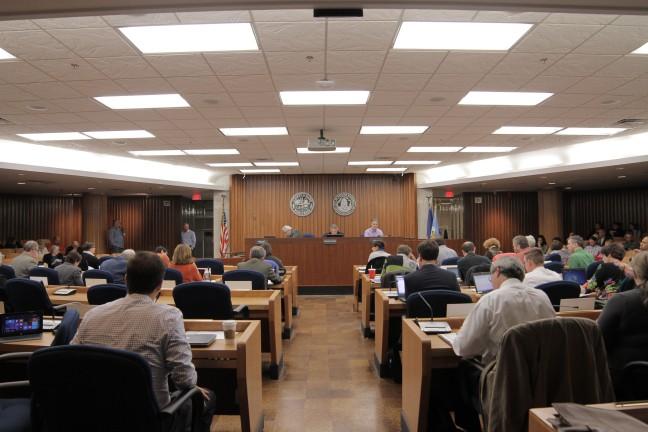Madison Mayor Paul Soglin unveiled his nearly $283 million operating budget proposal for 2015 at a City Council meeting Tuesday.
Soglin’s proposed operating budget, which raises taxes by 2.2 percent, is separate from his capital budget proposal and will likely see tweaks as it moves through the City Council. Revenues for the city would be up 7.3 percent under the proposal, with the city spending 2.6 percent more.
Under the proposed budget, an average value home in Madison would see a property tax of $2,255.61, an increase of $60 from 2014.
Under Soglin’s proposal, many city departments would see their budgets remain almost constant from the 2014 budget, including the police department, whose proposed 2015 total budget would be down slightly to $64.7 million.
The fire department’s budget, meanwhile, would increase by more than $1 million in 2015.
Also at Tuesday’s meeting, the alders voted 11-8 to reject a “tree fee” assessed to city homeowners to help eliminate emerald ash borer, a beetle severely damaging many city trees. The proposal was unpopular with several alders, especially those whose districts have fewer large trees along roadways.
The city has the option to either treat the trees or remove them, Parks Superintendent Eric Knepp said, adding the city has gotten the word out to the community by marking trees that would have to come down if they are not treated.
Soglin’s operating budget proposal adds several city staff to deal with the city’s emerald ash borer problem.
The alders also discussed the future of the city’s public market project, although they did not select a site. The Madison Local Food Committee recommended two sites for the market, one on Park Street and one on East Washington Avenue, with both locations seeing strong public support.
Ald. Lauren Cnare, District 3, raised concerns about the lack of private funding for the project, and how it seemed the city had the most to lose.
“No private dollars want to go in to this project,” she said.
She said she was also concerned about whether the money the city spent on the project would be worth the investment, as many possible vendors live outside of Madison and Dane County and would not necessarily spend the money earned in the city.
“Who are the real beneficiaries?” she said.
Also Tuesday, Ald. Lisa Subeck, District 1, as well as members of the community, stressed the need for a grocery store in the Allied Dunn neighborhood, which they said is now a “food desert.”
Several members of the Allied Dunn neighborhood spoke in favor of a grocery store, as well, describing their experiences taking the bus or cab several miles to the nearest grocery store.
Currently a grocery truck and a Walgreen’s drugstore, which is set to close at the end of 2014, serve the neighborhood.


